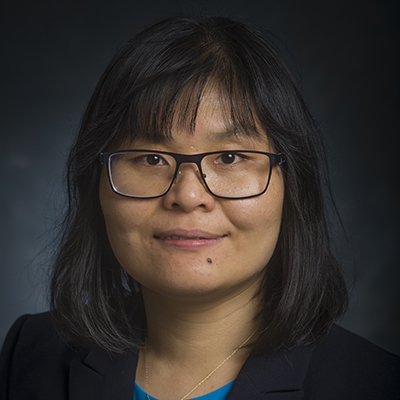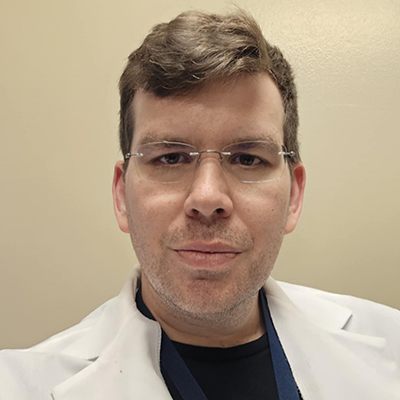Jianmei Leavenworth, M.D., Ph.D., associate professor in the Department of Neurosurgery, has been named the latest recipient of the school’s Fea Jianmei Leavenworth, M.D., Ph.D.tured Discovery award. This recognition celebrates notable research contributions made by faculty and highlights the impact of their scientific advancements.
Jianmei Leavenworth, M.D., Ph.D.tured Discovery award. This recognition celebrates notable research contributions made by faculty and highlights the impact of their scientific advancements.
Leavenworth’s study, “Oncolytic reprogramming of tumor microenvironment shapes CD4 T-cell memory via the IL6ra-Bcl6 axis for targeted control of glioblastoma,” was recently published in Nature Communications.
Malignant brain tumors remain one of the most aggressive and devastating forms of cancer, with most patients living less than two years even after surgery, radiation, and chemotherapy. To address this challenge, Leavenworth and her team developed a therapy using a specially engineered herpes virus that selectively destroys tumor cells while also activating the immune system to fight any remaining cancer.
“We discovered that a type of immune cell called CD4+ T-cells plays a pivotal role in sustaining this anti-tumor effect. This insight could help us design treatments that work better and last longer,” said Leavenworth.
The study’s first author, Jeff Grimes, Ph.D., graduated from UAB with his doctorate in microbiology and serves as a postdoctoral Jeff Grimes, Ph.D. researcher in Leavenworth’s lab. “This work was very fulfilling because it advanced our understanding of how the treatment reshapes the immune response within the tumor microenvironment. Following this line of inquiry, I was able to apply several novel techniques to uncover the underlying mechanisms involved,” said Grimes.
Jeff Grimes, Ph.D. researcher in Leavenworth’s lab. “This work was very fulfilling because it advanced our understanding of how the treatment reshapes the immune response within the tumor microenvironment. Following this line of inquiry, I was able to apply several novel techniques to uncover the underlying mechanisms involved,” said Grimes.
The Heersink communications team met with Leavenworth to gain insights into the study and help raise awareness about both the research and the Heersink School of Medicine.
What compelled you to pursue this research?
Brain tumors are among the most aggressive and devastating cancers, and current treatments often give patients only a little more time. We wanted to find a way to not only destroy the tumor but also help the immune system keep fighting to prevent relapse. Oncolytic viruses offered a unique chance to do both — kill cancer cells directly and stimulate the body’s own defenses. For me, this work is about transforming what is possible for patients and giving hope where options have been so limited.
What was your most unexpected finding?
We were surprised to find that CD4+ T-cells, not the more commonly studied CD8+ T-cells, were the main drivers of lasting immunity against brain tumors after treatment with our modified oncolytic virus. This challenges traditional thinking and suggests new directions for immunotherapy design.
How do you feel your research will impact the science community?
Our work highlights the critical role of CD4+ T-cells in sustaining immune responses to brain tumors after oncolytic virus therapy, a role that has been largely overlooked. By uncovering this, we open new possibilities for making immunotherapies more effective and durable, not only for brain tumors but potentially for other cancers as well. I believe this will inspire new research, refine immune monitoring approaches, and accelerate the development of better cancer treatments that improve patient outcomes.
When did you know you had an important discovery?
The turning point came when we removed CD4+ T-cells late in treatment and saw that the mice lost their protection against tumor rechallenge. Even more striking, transferring these cells from treated tumors into other mice significantly prolonged their survival. These results left no doubt that CD4+ T-cells were essential for long-term anti-tumor immunity.
How has being at UAB affected your research?
This research was made possible through collaboration with James Markert, M.D., who leads pioneering efforts in oncolytic virus therapy at UAB. Being at UAB has provided access to valuable resources, expertise, and a collaborative environment that has significantly advanced this work.